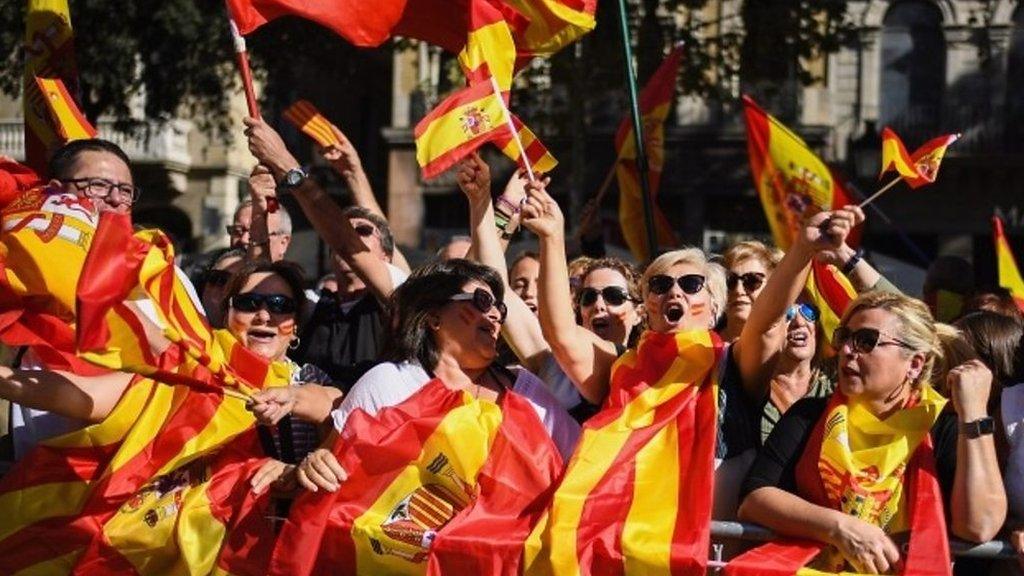Catalan independence: Spain's top prosecutor calls for rebellion charges
- Published
- comments
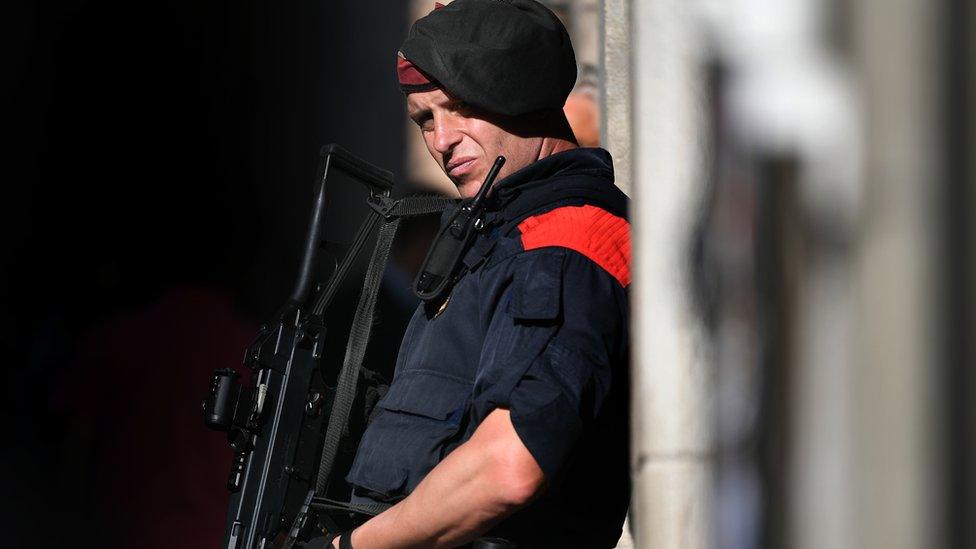
Catalan police guarded the regional government as Catalonia returned to work on Monday
Spain's chief prosecutor has called for charges including rebellion - which carries a maximum 30 year jail term - to be brought against Catalan leaders.
José Manuel Maza said they should also face sedition charges following the region's declaration of independence.
It comes as Spain takes direct control of Catalonia, replacing top officials.
Meanwhile, a lawyer in Belgium says he is representing sacked Catalan leader Carles Puigdemont, who has travelled to the Belgian capital Brussels.
The lawyer, Paul Bekaert, did not comment on speculation that the ex-president could be preparing an asylum application.
"At the moment there are no specific dossiers I am preparing for him," he said. "I'm his lawyer in case he needs me."
Spanish media reported that Mr Puigdemont would meet Flemish leaders, external. He is said to be travelling with a handful of dismissed ministers.
Spanish authorities sacked Mr Puigdemont as regional leader on Friday, and suspended Catalan autonomy.
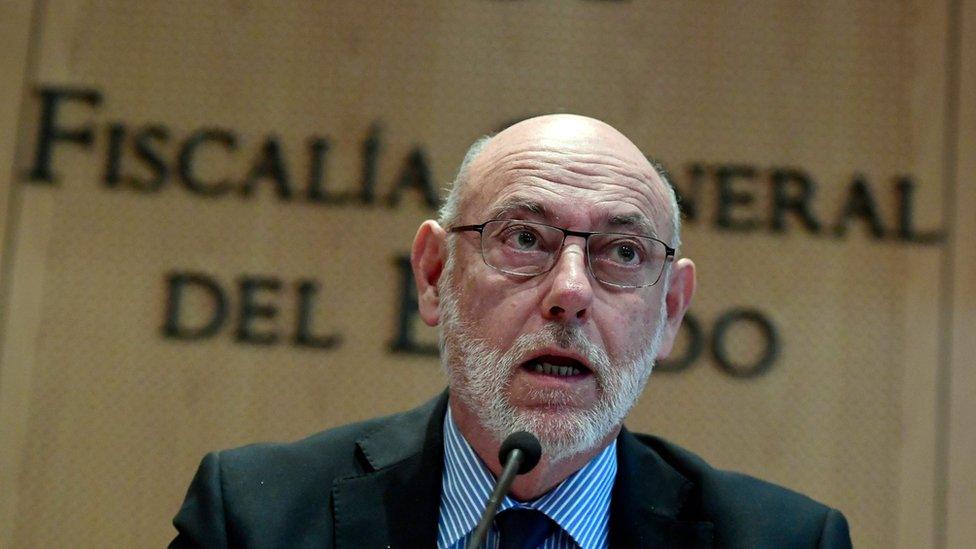
José Manuel Maza said Catalan ministers should also be charged with misuse of funds
Speaking at a news conference earlier, Mr Maza, the Spanish attorney-general, called for Catalonia's leaders to be charged with misuse of funds over the independence referendum they held in October, after it had been declared illegal by the constitutional court.
Under the Spanish legal system, Mr Maza's requests will be considered by a judge.
What happened on Monday?
There appeared to be no major disruption in Catalan government offices on Monday, despite some officials defying instructions from Madrid not to turn up for work.
Any ministers who arrived at their offices were given hours to leave under threat of "action" by Catalonia's regional police force, Mossos.
Madrid's temporary move to impose direct control by invoking Article 155 of the constitution - a first for Spain - will see as many as 150 of the region's top officials replaced.
Mr Puigdemont and his vice-president Oriol Junqueras reject the central government's moves, arguing they can only be removed from office by the citizens of Catalonia.
What's next for Catalan autonomy?
Madrid has called for fresh regional elections on 21 December.
A spokeswoman for Mr Puigdemont's PDeCAT party said it would field candidates "with conviction". The ex-president could run in new elections if he has not been jailed by then, according to Spain's Foreign Minister Alfonso Dastis.
On Monday, Mr Dastis said he hoped the forthcoming elections would help to "restore legal governance and rule of law in Catalonia".
Meanwhile, Interior Minister Juan Ignacio Zoido has written to all police officers in Catalonia asking for their loyalty as a "new era" begins in the region
What is the local press saying?
The centre-left and unionist Madrid-based El País says that Sunday's huge pro-union protest in Barcelona "has shown in this difficult moment that Catalan society is much more plural than what the pro-independence block strives to show"
The pro-union Barcelona-based El Periódico says the protest was the "start of the election campaign". It adds that "the new regional elections should serve to move Catalonia out of its current impasse"
The pro-independence Catalan language Ara suggests in an editorial that it would be an "error" for the pro-independence parties not to contest the 21 December elections
The moderate Barcelona-based La Vanguardia focuses on the importance of "reconstruction" and how to overcome the divisions in Catalan society. "All sides will inevitably discover that there is no political problem that cannot be resolved by dialogue" it says
How did we get here?
Spain has been gripped by a constitutional crisis since a referendum, organised by Mr Puigdemont's separatist government, was held earlier this month in defiance of a ruling by the constitutional court which had declared it illegal.
The Catalan government said that of the 43% of potential voters who took part, 90% were in favour of independence.
On Friday the regional parliament declared independence.
Spanish Prime Minister Mariano Rajoy then announced the dissolution of the regional parliament and the removal of Mr Puigdemont as Catalan leader.
Mr Puigdemont has urged "democratic opposition" to direct rule from Madrid.
Flags in Catalonia and what they mean
Before this, the region had one of the greatest levels of self-government in Spain.
It has its own parliament, police force and public broadcaster, as well as a government and president.
Catalans had a range of powers in many policy areas, external from culture and environment to communications, transportation, commerce and public safety.
- Published14 October 2019
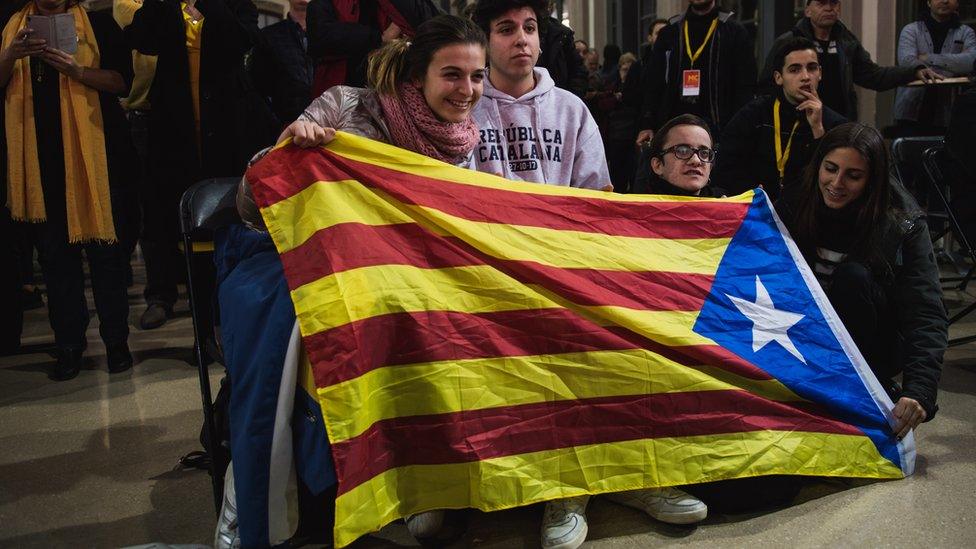
- Published2 November 2017
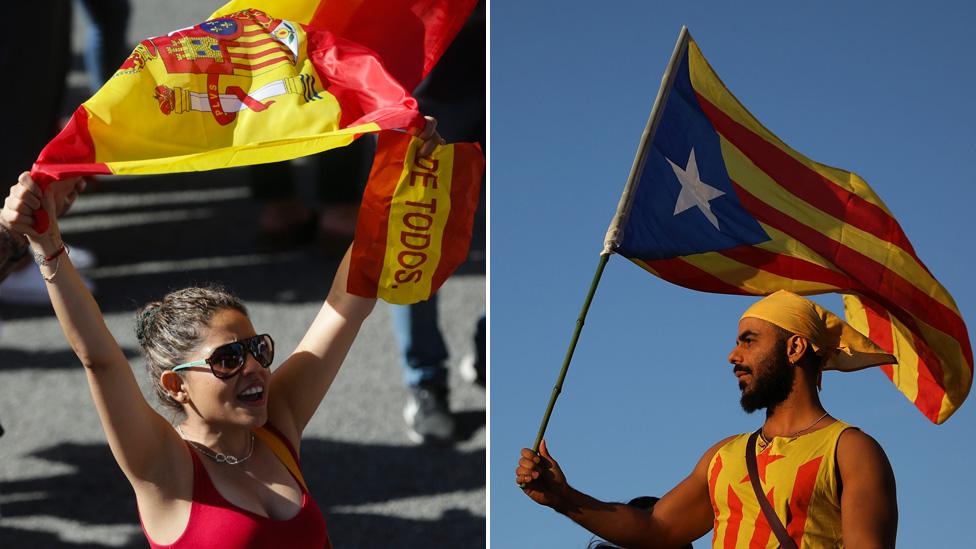
- Published27 October 2017
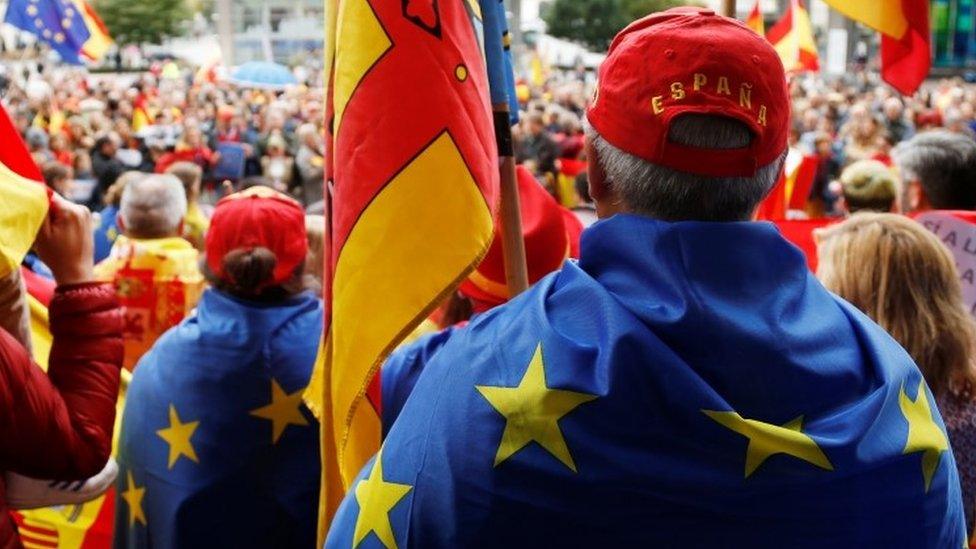
- Published28 October 2017
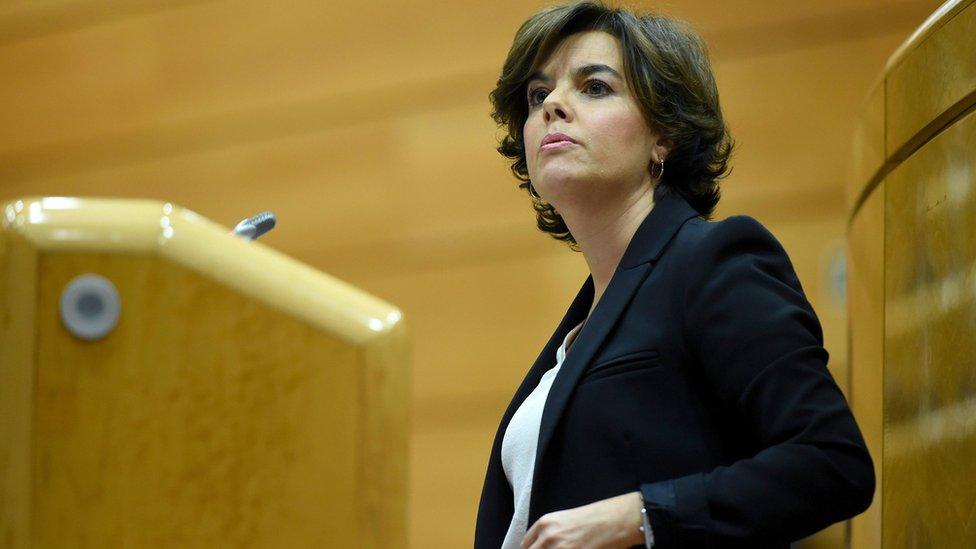
- Published29 October 2017
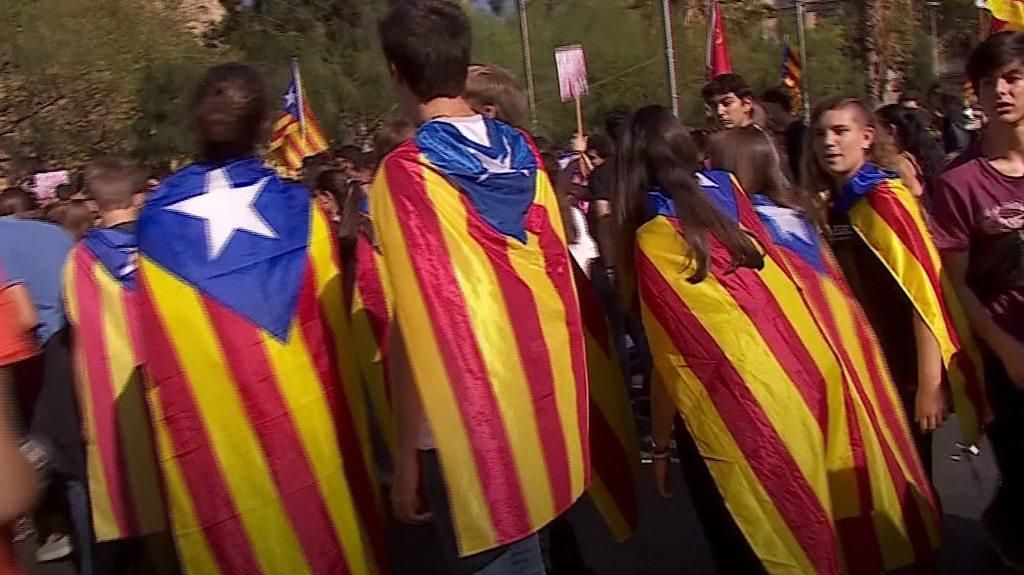
- Published29 October 2017
